I moved from the UK to the US 12 years ago here are 21 British words I refuse to give up
Lydia Warren

- I moved from London, England, to New York in 2011.
- Over the past decade, I've adopted many American words so I don't have to keep explaining myself.
When I moved from the UK to the US in 2011, I mistakenly assumed that because Americans and Brits speak the same language, the transition would be seamless. But I quickly realized we don't speak the same language at all.
Twelve years later, I've naturally adopted many American words, sayings, and patterns of speech. This is true of words I use most often — sticking with the American versions saves me from having to explain myself each time.
However, I'm still holding on to many British words — words that make more sense to me, that don't have a satisfactory American equivalent, or that are simply fun to say.
Here are some of the British words I still use, a decade after moving to the US.
I wear jumpers and trousers, not sweaters and pants.
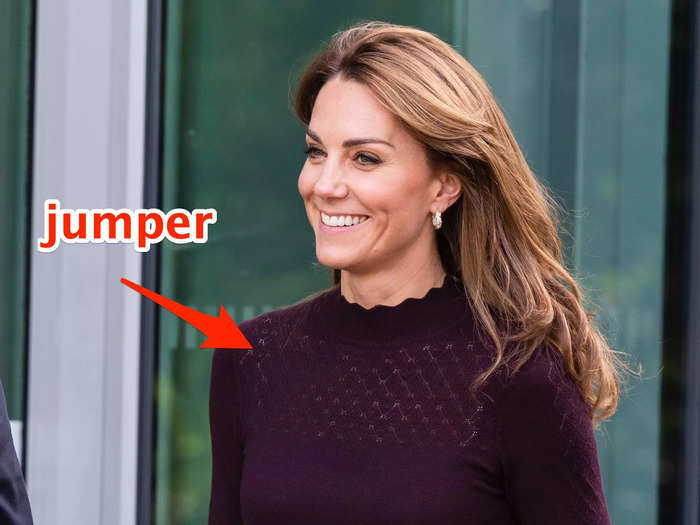
Clothing is one of the categories where there are multiple differences between British and American English, and I just can't shake the British versions.
I still say "trousers" because, to me, "pants" are the things you wear under your trousers.
Another American word I typically avoid is "vest." It's used for multiple types of garments in the US, and us Brits have different words for all of them.
For example, the item you wear under a jacket as part of a three-piece suit is a "waistcoat." The sleeveless, padded jacket that you wear on colder days is a "gilet" (with a soft g and a silent t).
For Brits, a vest is a sleeveless top you wear under your clothes for an extra layer, like underwear. Babies wear them too.
And I'm still confused by the American use of the word "shirt" — in the UK, we only use it for items with buttons. Instead, I say "top."
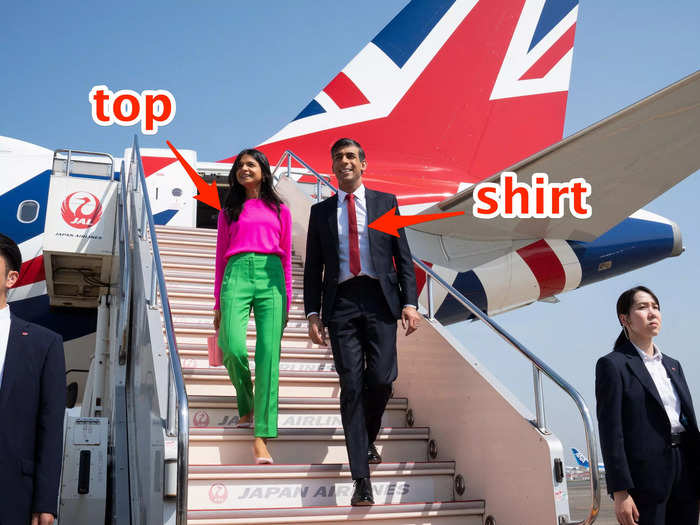
There's more: What Brits call "joggers" or "tracksuit bottoms," Americans call "sweatpants."
And what Americans call "coveralls," we call "overalls," and instead of "overalls," we say "dungarees."
The list feels endless.
It doesn't rain as much in New York as it did in London, but when it does, I still wear wellies and take a brolly with me.
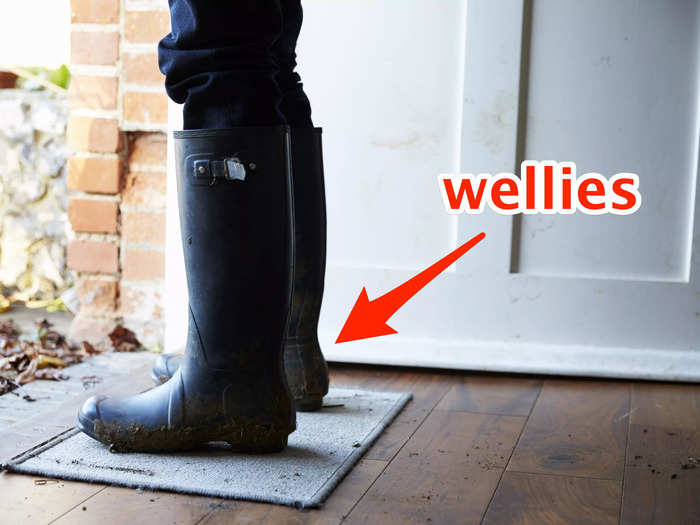
"Wellies" is short for Wellington boots, named after the Duke of Wellington, who first wore the style in the early 1800s. "Brolly" is a shortened version of umbrella.
I grew up in the soggy English countryside, so these words are too deeply embedded for me to ditch at this point.
My house — not pictured — has a ground floor and a first floor, not a first floor and second floor.
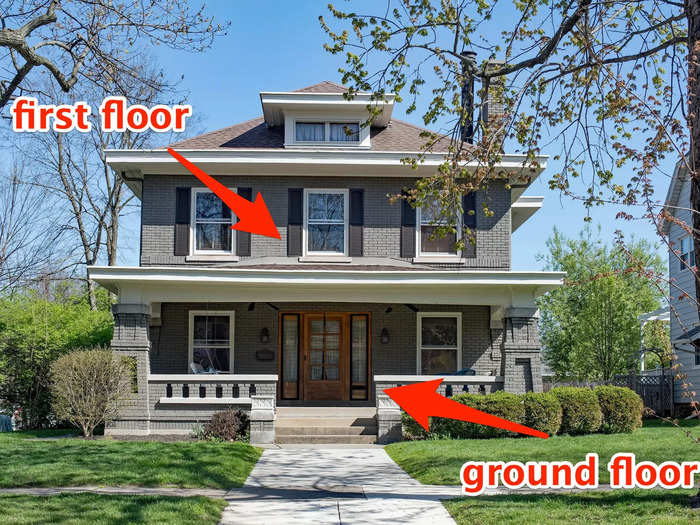
What British people call the ground floor, Americans call the first floor. The Brits' first floor is therefore the Americans' second floor, and so on.
To me, the first floor always indicates a level up, not the level on the ground — that's the self-explanatory ground floor. This is the sort of difference between UK English and American English that can cause all sorts of confusion during conversations.
"I'm waiting for you on the first floor!"
"No, you're not!"
In the UK, a terraced house is attached to other homes on both sides, and a semi-detached house is only attached on one side. I'm still not sure what the American equivalents are.
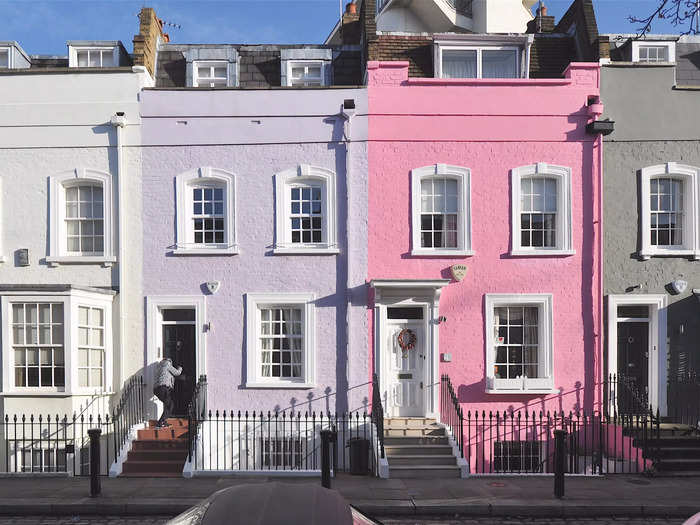
In the US, terraced homes are called townhouses or condos, yet those words also seem to fall short of the wide range of home types that "terraced" can refer to.
My American husband finds the word "semi-detached" ridiculous ("Shouldn't it be semi-attached?" he asks), but at least we have a word for it. A "duplex" is the most similar but, again, it doesn't really conjure the same image to me.
Words like "higgledy-piggledy" and "wonky" just don't have suitable equivalents in the US — plus, they're fun to say.
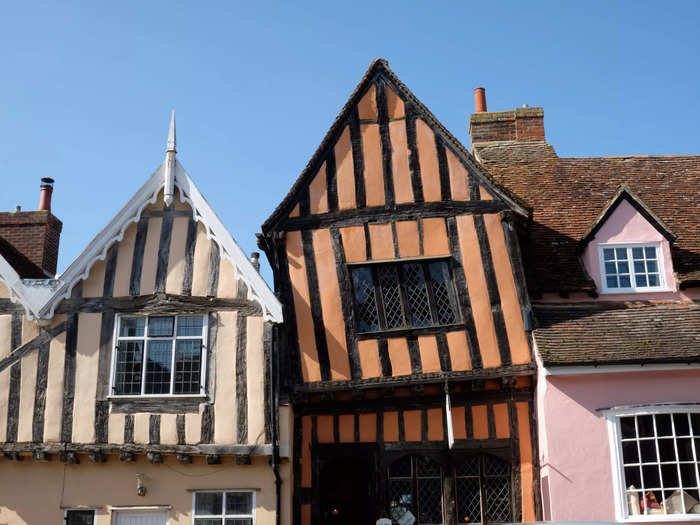
The rhythm of "higgledy-piggledy" perfectly reflects its meaning: Being a bit all over the place, a little bit chaotic. If I call a row of buildings higgledy-piggledy, like those above, I'm saying there's nothing uniform about them.
"Wonky" means askew.
The word "jobby" — which I borrowed from my time living in Scotland — is a favorite of mine, and now my American relatives say it, too.
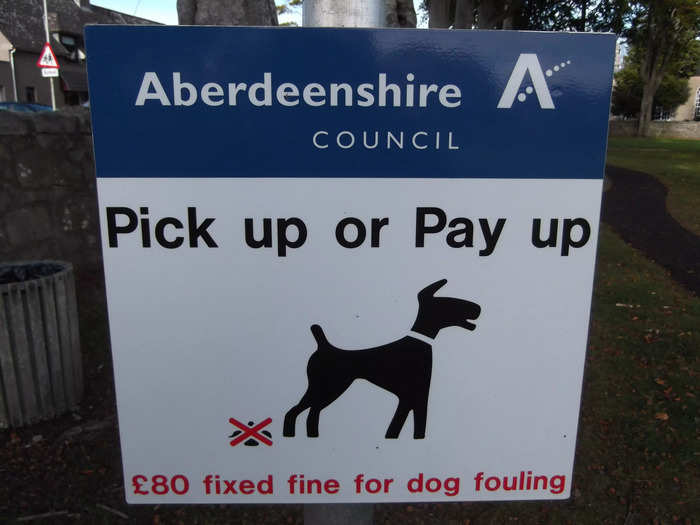
I studied in Scotland for four years, and one of the most enduring things from my time there is my love of the word "jobby."
It means poop.
And while we're on the topic, "loo" is still firmly in my vocabulary, too.
Phrases like "I'm gutted" or "I'm chuffed" don't have American equivalents, either.
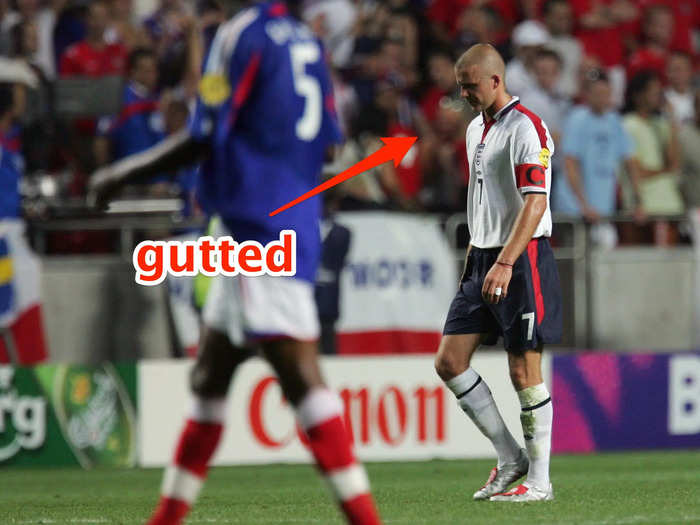
To be "gutted" is to feel disappointed or upset, while "chuffed" is to be pleased.
While I love these words, if I use them I should expect to explain myself to Americans.
As a new mother, I find some deeply ingrained words like "nappy" and "dummy" come to mind before the American words.
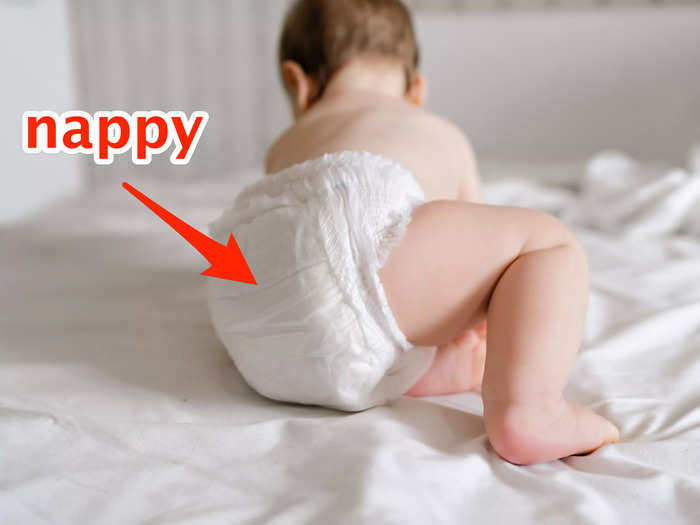
Since becoming a mother, I've discovered a whole new American vocabulary.
While some British words like "nappy" and "dummy" come more naturally to me over "diaper" and "pacifier," some American words seem to be sticking: I've found myself opting for "crib" over the British "cot"; "stroller" over the British "buggy" or "pram"; and "onesie" over "babygrow." Perhaps it's because I use them in public more, so it's just easier and quicker to use the American versions.
It means that when I'm talking to my family in the UK and want to use these words, I have to take a moment to remember the British versions, as if I'm translating from one language to another in my head.
Time will tell if my son calls me "mum" or "mom."
Travel also highlights some differences. It took me a while to realize "a return" does not have the same meaning in the US.
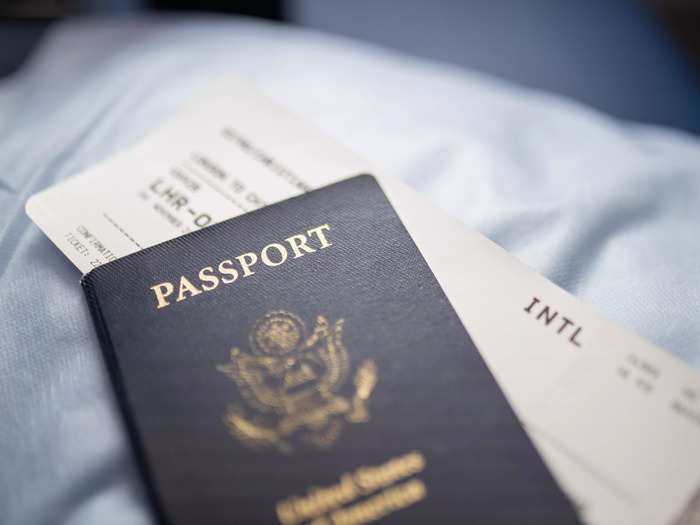
In the UK, a return ticket is both the outgoing ticket and the return ticket — what Americans would call a round trip. I've only recently realized this distinction, so I wonder if I've unknowingly had some really confusing conversations.
I also opt for some British words when it comes to car travel, like "boot," but I've found it's much easier to say "gas" instead of "petrol."
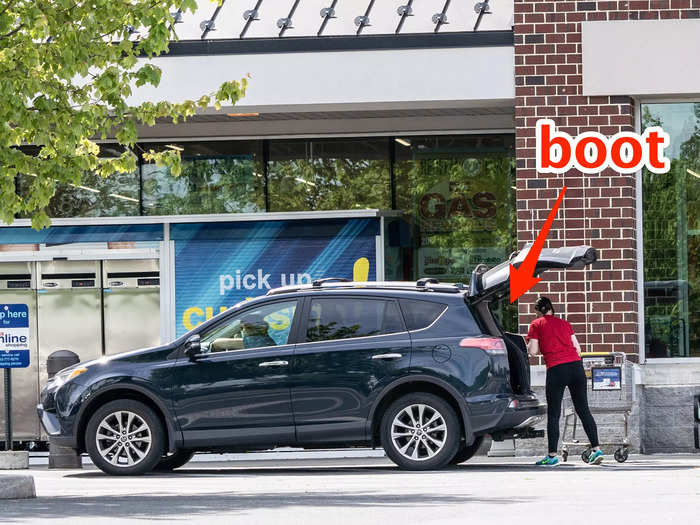
Again, this comes down to frequency of use — talking about "gas" is something I do with other people more often.
Similarly, using American words for food items makes things a lot easier, so I've converted to calling aubergine "eggplant," courgette "zucchini," and spring onions "scallions."
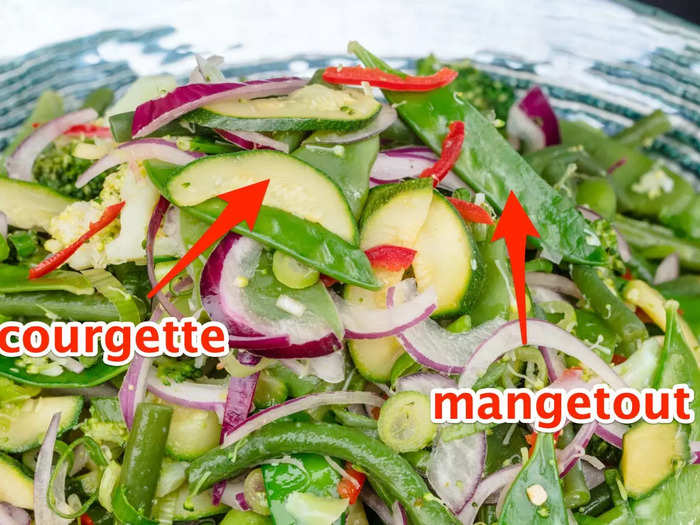
The list of foods with different names in the UK and US is pretty extensive. Other examples include chips vs. fries, crisps vs. potato chips, porridge vs. oatmeal, biscuit vs. cookie, coriander vs. cilantro, and bap vs. bun.
I've found it so much easier just to stick with the American versions of these words because I always have to translate them anyway. And I think some of these words, such as "eggplant," are way better descriptors than their British counterparts.
The French-derived "courgette," "aubergine," and "mangetout" ("snow pea" in the US) sound lovelier, but they're just not words all Americans are familiar with, in my experience.
But "lasagna" should always be spelled "lasagne" — sorry America.
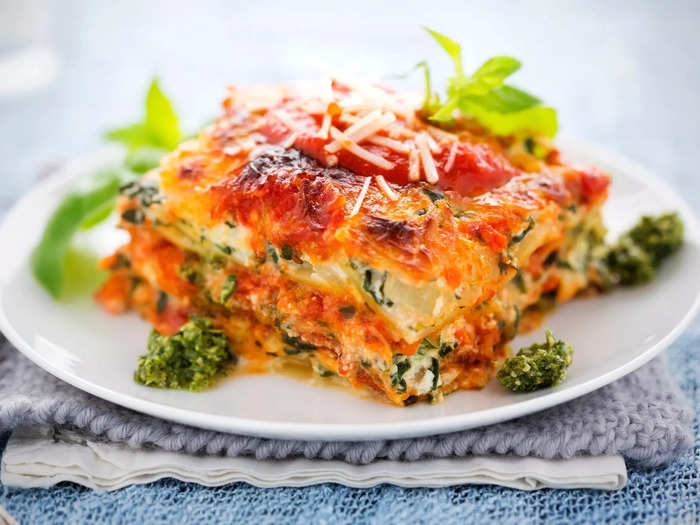
When I first saw the dish written as "lasagna," I assumed it was a mistake — and it is, sort of. The "a" at the end of lasagna in Italian indicates a single noodle, while the "e" refers to multiple noodles.
"It's funny that in the United States, we use the singular version because we do not say 'linguino' or 'spaghetto,'" food historian Katherine Spiers told Better Homes & Gardens in 2020. "I believe lasagna is the one pasta dish we use the wrong form for."
The words sound identical, but I know I'm saying mine with an "e" at the end.
Finally, although I've been here more than a decade, I still don't know whether 60 degrees Fahrenheit means it's hot or cold.
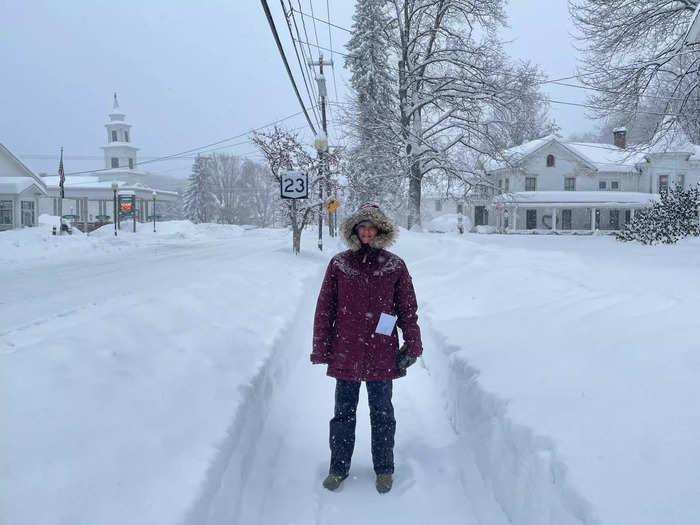
This one is more of a concept than a particular word, but I still haven't converted to Fahrenheit, and I think in Celsius instead.
Doesn't Celsius — where 0 indicates freezing and 100 is boiling — just make more sense?
Popular Right Now
Popular Keywords
Advertisement